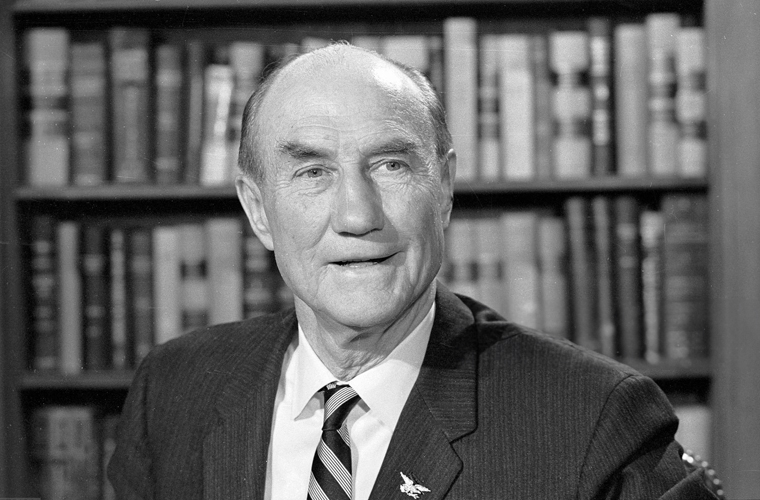Strom Thurmond, a prominent figure in American politics, left an indelible mark on the nation’s history. Known for his long and storied career, Thurmond’s legacy is one of political influence and controversy. This article aims to delve into the life and achievements of Strom Thurmond, shedding light on his contributions and examining the controversies that surrounded him. James Strom Thurmond was born on December 5, 1902, in Edgefield, South Carolina. Raised in a politically active family, Thurmond developed an interest in public service from an early age. He attended Clemson Agricultural College (now Clemson University), where he excelled academically and participated in various extracurricular activities. After graduating with honors in 1923, Thurmond went on to study law at the University of South Carolina School of Law, earning his degree in 1928.
Thurmond’s political career began in 1929 when he was elected as the Edgefield County superintendent of education. This marked the beginning of a long and successful journey in public service. In 1933, he was appointed as a circuit judge, and in 1938, he became the state’s attorney general. Thurmond’s ascent continued in 1946 when he was elected as the governor of South Carolina, a position he held for four years. In 1954, Thurmond made history by becoming the first Southern senator to be elected as a write-in candidate. His election to the United States Senate marked the beginning of a new chapter in his political career. Thurmond served as a senator for South Carolina for over four decades, making him one of the longest-serving senators in American history.

















Throughout his career, Thurmond exerted significant political influence and achieved several notable accomplishments. He was a staunch advocate for states’ rights and played a pivotal role in opposing civil rights legislation during the 1950s and 1960s. Thurmond’s filibuster against the Civil Rights Act of 1957, which lasted for over 24 hours, remains one of the most famous instances of filibustering in American history. In addition to his stance on civil rights, Thurmond also made significant contributions in other areas. He served as chairman of the Senate Judiciary Committee from 1981 to 1987 and played a key role in shaping the nation’s legal landscape. Thurmond’s efforts led to the confirmation of several conservative judges, including Supreme Court Justices Antonin Scalia and Clarence Thomas.
Despite his accomplishments, Thurmond’s legacy is not without controversy. One of the most significant controversies surrounding him was his past support for racial segregation. Thurmond was an ardent defender of segregationist policies throughout much of his early political career. However, in later years, he distanced himself from these views and publicly expressed regret for his past positions.
Another controversy that marred Thurmond’s legacy was the revelation of his extramarital affair with a Black woman named Essie Mae Washington-Williams. Washington-Williams, who was born out of wedlock, came forward in 2003 to reveal her true parentage. This revelation shocked many and raised questions about Thurmond’s commitment to racial equality. Strom Thurmond’s impact on American politics cannot be understated. His staunch conservatism and unwavering commitment to his principles made him a formidable force in Congress. While his views on civil rights remain controversial, his contributions to shaping the nation’s legal landscape are undeniable.
Thurmond retired from politics in 2003 at the age of 100, making him the oldest-serving senator in U.S. history. He passed away later that year, leaving behind a complex legacy that continues to be debated. Strom Thurmond’s life and career were marked by political influence and controversy. From his early days as a circuit judge to his time as a senator, Thurmond left an indelible mark on American politics. While his stance on civil rights remains a subject of criticism, his contributions to shaping the nation’s legal landscape cannot be ignored. As we reflect on his legacy, it is essential to acknowledge both his achievements and the controversies that surrounded him.

